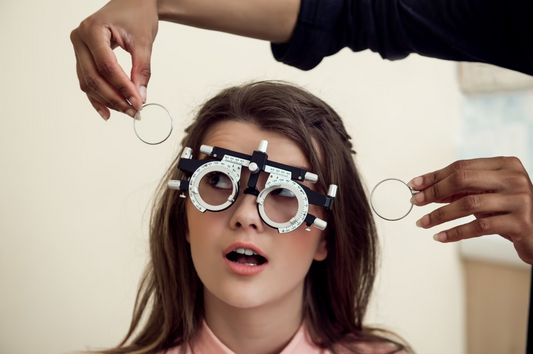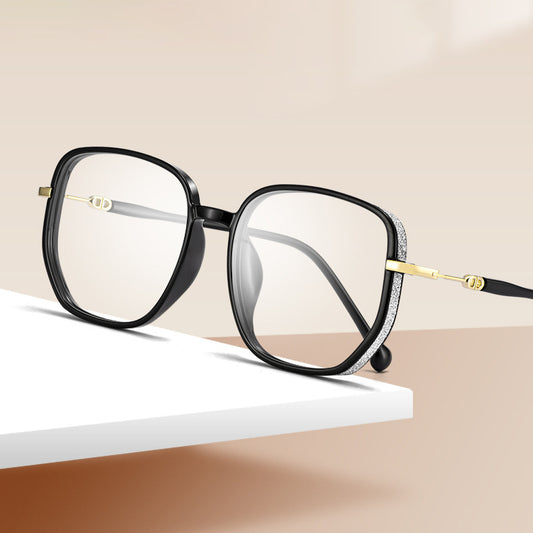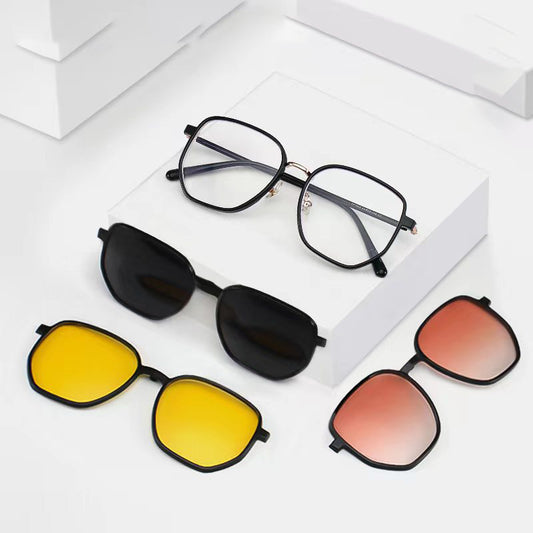As technology advances, more and more young people are using electronic devices for extended periods of time. This has led to an increase in vision problems, such as myopia, hyperopia, and astigmatism. For those who require corrective lenses, progressive glasses have become a popular choice due to their versatility and ease of use. However, some people are concerned about the potential negative effects of wearing progressive glasses at a young age. In this article, we will explore whether young people can wear progressive glasses without any negative effects.
What are Progressive Glasses?
Progressive glasses, also known as multifocal glasses, are a type of eyewear that combines multiple prescriptions into a single lens. Unlike traditional bifocal lenses, which have a visible line separating the different prescriptions, progressive glasses have a gradual transition between them. This allows wearers to see clearly at different distances without the need to switch between multiple pairs of glasses.
Are Progressive Glasses Suitable for Young People?
Yes, progressive glasses are suitable for young people who require corrective lenses. In fact, they can be a great option for those who have different vision problems at different distances. For example, a young person may have myopia for seeing objects far away, but also have difficulty reading up close. Progressive glasses can correct both issues in a single lens.
Potential Negative Effects of Wearing Progressive Glasses
While there are no specific negative effects of wearing progressive glasses at a young age, there are some general concerns that people have raised.
Difficulty Adjusting to the Lenses
One potential issue with progressive glasses is that some wearers may have difficulty adjusting to the different prescriptions in the lens. This can cause discomfort, headaches, and dizziness. However, these symptoms usually go away after a brief adjustment period.
Limited Field of Vision
Another concern is that the gradual transition between prescriptions in progressive glasses can result in a limited field of vision. This can be especially problematic for those who require clear vision for activities such as driving or sports. However, this is not a common issue and can be minimized by choosing the right type of progressive lens.
Cost
Finally, progressive glasses can be more expensive than traditional single vision lenses. This can be a concern for young people who may not have the financial resources to afford them. However, there are many affordable options available, and some insurance plans may cover the cost of progressive glasses.
Benefits of Wearing Progressive Glasses
Despite the potential concerns, there are many benefits to wearing progressive glasses at a young age.
Convenience
One of the main benefits of progressive glasses is their convenience. They eliminate the need to switch between multiple pairs of glasses, which can be especially helpful for young people who are always on the go.
Improved Vision
Progressive glasses can also improve vision by correcting multiple vision problems in a single lens. This can lead to better academic performance, as well as improved quality of life.
Style
Finally, progressive glasses come in a variety of styles, allowing wearers to express their personal style and fashion sense. This can be especially important for young people, who may be more concerned with their appearance than older adults.
Conclusion
In conclusion, young people can wear progressive glasses without any negative effects. While there may be some concerns about adjusting to the lenses and the cost, the benefits of improved vision and convenience outweigh the potential drawbacks. If you are a young person who requires corrective lenses, consider talking to your optometrist about whether progressive glasses are right for you.
FAQs
- Can progressive glasses correct astigmatism?
- Yes, progressive glasses can correct astigmatism, as well as other vision problems.
- How long does it take to adjust to progressive glasses?
- It usually takes a few days to a week to adjust to progressive glasses.
- Can progressive glasses be worn while driving?
- Yes, progressive glasses can be worn while driving, but it is important to ensure that the lenses provide clear vision for all distances.
- Can young people wear contact lenses instead of progressive glasses?
- Yes, young people can wear contact lenses, but they may not be suitable for everyone and require proper care and maintenance.
- How often should young people get their eyes checked?
- It is recommended for young people to get their eyes checked every 1-2 years, or more frequently if they have underlying vision problems.








